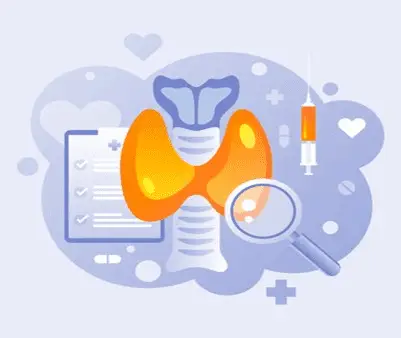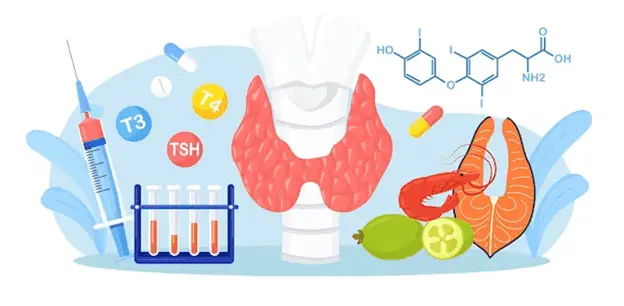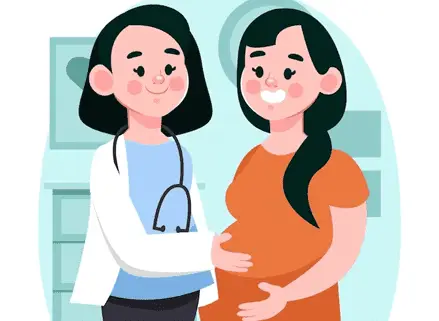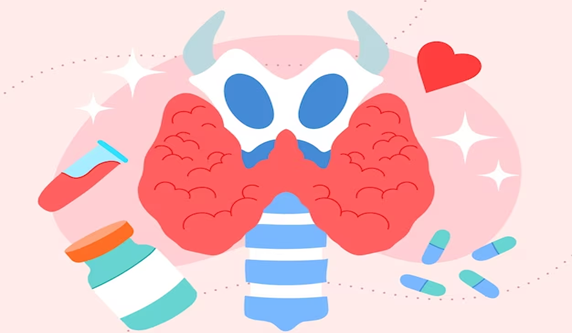Are you struggling with subclinical hypothyroidism and fertility challenges? Your journey to parenthood doesn’t have to be a solitary one. Welcome to a place where hope meets expertise. Nisha IVF is an IVF centre in Ahmedabad. Our doctors understand the complexities of fertility issues. Especially when linked with thyroid health.
Subclinical hypothyroidism is a condition where TSH levels in your body increase. But, the thyroid hormone level stays normal. This is an intriguing topic in the context of fertility.
Subclinical hypothyroidism and fertility issues go hand in hand. The former has implications for the latter. Understanding its impact is important to manage it.
Schedule your consultation today, and let’s embark on this transformative journey together.
Wondering if subclinical hypothyroidism can affect your fertility? Let’s understand!!
Can subclinical hypothyroidism affect fertility?

Yes, subclinical Hypothyroidism can affect fertility. Subclinical Hypothyroidism is a condition. In it, a person has high levels of thyroid-stimulating hormone (TSH). However, they have normal levels of thyroid hormones (free T4 and free T3). This condition can have several implications for fertility and reproductive health.
It can cause irregular ovulation. This makes it hard to conceive. It may also cause luteal phase defects. These are crucial for implantation and early pregnancy. Also, women with this condition face a higher risk of miscarriage. They may have lower success rates with in vitro fertilization (IVF). This is due to the key role of thyroid hormones in fetal development and egg quality.
If you’re trying to conceive and worry about subclinical Hypothyroidism’s effect on your fertility, you must talk to a doctor. They can do thyroid function tests. They can also offer treatments like thyroid hormone therapy. These can help normalize TSH levels, boost your chances of conceiving, and support a healthy pregnancy.
Curious about the effects of Subclinical Hypothyroidism on women’s fertility? Read on to understand!
What are the effects of Subclinical Hypothyroidism on women’s fertility?

Subclinical Hypothyroidism can hurt women’s fertility. It affects many parts of reproductive health:
- Ovulatory Dysfunction can cause irregular or absent ovulation (anovulation). This makes it hard for women to conceive because eggs are released inconsistently.
- Luteal Phase Abnormalities can cause defects in the luteal phase, which is the time after ovulation in the menstrual cycle. It is crucial for the embryo’s implantation and early growth. A too-short luteal phase can prevent the embryo from implanting well in the uterus.
- Women with mild Hypothyroidism are at a higher risk for miscarriage. The thyroid hormones play a vital role in maintaining pregnancy. Even a small imbalance in them can harm the pregnancy’s viability, even at subclinical levels.
- Fertility treatment outcomes are impaired. They are for those doing in vitro fertilization (IVF). Subclinical Hypothyroidism can lower success rates. Thyroid hormones are key for egg quality and the womb environment. Both are key to fertility treatments.
Consult with a specialist and increase your chances of conception. Explore the odds!! Understand the possibility of conception with subclinical hypothyroidism!!
Can you get pregnant if you have subclinical hyperthyroidism?

Yes, it is possible to get pregnant if you have subclinical Hypothyroidism. However, this condition can affect fertility in many ways. Hence, it is important to take some measures and precautions. This is to manage the condition and its effects on your pregnancy.
If subclinical Hypothyroidism affects your pregnancy, you can try considering ART. Assisted reproductive technologies like IVF can be effective in these cases.
This procedure can help you overcome fertility issues. The doctors directly fertilize the eggs with the sperm.
Nisha IVF, considered one of the best IVF centres in Ahmedabad, can assist in such fertility cases. We offer comprehensive fertility evaluations and personalized treatment plans. Our experienced doctors and advanced technologies can help you.
Get in touch with us today to treat your subclinical hypothyroidism and infertility.
Interested in learning about the root cause? Continue reading as we discuss this below!!
What is the root cause of subclinical hypothyroidism?

Subclinical Hypothyroidism is caused by underlying autoimmune thyroid disease. This can include Hashimoto’s thyroiditis, where the immune system attacks the thyroid gland. Other causes may include iodine deficiency, certain medications, or pituitary gland disorders.
It happens when the thyroid gland does not respond properly to brain signals. Your brain sends signals to the thyroid gland to make hormones. When enough hormones are made, the brain sends signals to stop making the hormone. But in subclinical Hypothyroidism, the thyroid doesn’t get the message to stop, so your brain keeps sending signals. This causes high levels of TSH in the body and normal levels of thyroid hormone in the blood.
Want a solution for this problem? Explore the treatments below!
What are the Treatments for Women with Subclinical Hypothyroidism

Some of the treatments for subclinical Hypothyroidism in women include the following:
- Thyroid hormone replacement therapy: This involves taking synthetic thyroid hormone medication, such as Levothyroxine, to restore thyroid hormone levels to normal. It helps lower TSH levels and alleviate symptoms.
- Regular monitoring and blood tests help track thyroid hormone levels in your body. Then, your doctor can adjust the medication dosage accordingly, ensuring optimal thyroid functioning.
- Lifestyle modifications: These include a balanced diet, regular exercise, and stress management. Adequate sleep is also important. All these can help in improving the symptoms of subclinical Hypothyroidism.
- Addressing underlying causes: Certain medications can also change hormone levels. This requires a tailored and individual approach. Treatment plans should be tailored to your specific needs.
Suppose you are also suffering from subclinical hypothyroidism and fertility issues. Discuss your problems with an expert immediately.
Contact us for personalized consultation today!
Here’s how you can increase your chances of pregnancy.
How can I increase my fertility with hypothyroidism?

To increase your chances of subclinical hypothyroidism fertility, adhere to medications as prescribed. Incorporate lifestyle modifications like a healthy diet, enough sleep, physical exercise, and stress management.
Consult with a fertility specialist and track progress at regular intervals. Consider IVF or other infertility treatments that suit your condition.
Are you confused about where to get personalized fertility treatment in Ahmedabad? We are here to help!!
Visit us today and explore the range of treatments we have to help you become parents!!
Conclusion
Subclinical Hypothyroidism and fertility are closely linked. Understanding the impact of subclinical Hypothyroidism on fertility is crucial for effective management. Focus on managing it with proper medications. Also, consider fertility treatments to increase your chances of conception.
FAQs
Q1. How can I increase my fertility with hypothyroidism?
Ans. To increase fertility with hypothyroidism. Adhere to medication, and maintain a healthy lifestyle. Consult with a fertility specialist if needed.
Q2. Can I get pregnant if my husband has hypothyroidism?
Ans. Yes, you can still get pregnant if your husband has hypothyroidism. Hypothyroidism does not directly impact fertility in men. But, both of you need to manage your thyroid health. This ensures reproductive wellness.
Q3. Can subclinical hypothyroidism cause miscarriage?
Ans. Subclinical thyroid increases the levels of TSH in your body. This can cause miscarriage in women.
Q4. Can you have a safe pregnancy with hypothyroidism?
Ans. Yes, you can have a safe pregnancy with hypothyroidism. Keep close monitoring and manage your thyroid levels.


